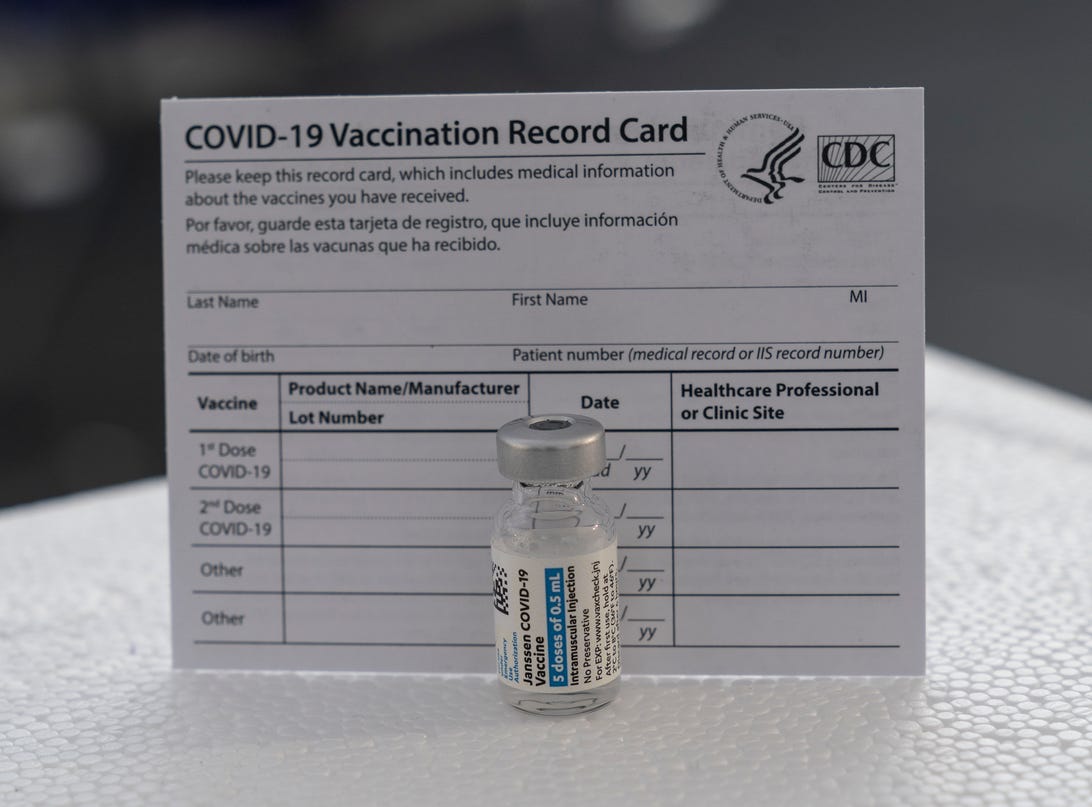Can You Draw Unemployment If You Get Fired In Tennessee

Vaccine requirements could make you ineligible for jobless aid if you don't have a legitimate exemption.
Sarah Tew/CNETFor the most up-to-date news and information about the coronavirus pandemic, visit the WHO and CDC websites.
Vaccination mandates have been sweeping across the US, with President Biden's mandate being the most expansive, requiring more than 100 million workers to be fully vaccinated by Jan. 4 or else submit a negative weekly COVID-19 test to their employer. The mandate applies to private sector companies with 100 or more employees, as well as federal contractors and health care workers.At least 27 states have challenged the mandate in federal court since the White House's announcement on Thursday, with the Fifth Circuit Court of Appeals temporarily blocking the Department of Labor's Occupational Safety and Health Administration (OSHA) mandate for employers with 100 or more employees across the nation.
So what happens if you refuse to comply as an employee to get vaccinated or submit a weekly COVID test? Do you still qualify for unemployment insurance after getting fired?
At the outset, we'll note that this is an evolving legal issue -- underscored by state challenges to the federal mandate -- that's likely to finish playing out in the courts. And the federal mandate isn't the only one in action; there are also several company-based and state vaccine mandates already in place for certain work sectors. For example, health care workers in Washington and New York are currently required to be vaccinated against COVID-19 or face dismissal.
Despite these uncertainties, as a general rule, employees who resign or are fired for refusing a COVID-19 vaccine are not eligible for unemployment benefits. Some legal experts believe that resisting a vaccine mandate could be treated as equivalent to a voluntary resignation, which would disqualify an employee from receiving benefits. But the rules vary by region and employer. Despite a few federally recognized exceptions, most states have not yet officially weighed in on the matter.
Multiple studies have shown that COVID-19 vaccines are highly effective in preventing severe illness and death and are an important tool in bringing the pandemic under control. Nearly all COVID hospitalizations and deaths are among the unvaccinated.
For now, here's a snapshot of the issues involved -- and how they may impact your eligibility for unemployment benefits.
What is unemployment insurance?
Unemployment insurance, or UI, is a state-federal program designed to provide temporary income support for individuals who lose their job through no fault of their own. UI benefits are overseen by the federal government but each state administers its own unemployment program and sets requirements for eligibility.
Who is eligible to collect unemployment insurance?
In normal times, according to the US Department of Labor, you're eligible for UI benefits if you:
1. Lose your job through no fault of your own.
2. Meet the work and wage requirements established by your state as well as any additional state requirements.
That noted, the eligibility criteria was adjusted in 2020 with the emergence of the COVID-19 pandemic, but those pandemic unemployment benefits have since expired. Still, in most cases, you can be denied if it can be proved that you quit your job without "good cause" or if you were discharged for misconduct or lack of compliance with employer policies.
Can you collect unemployment if you're fired for refusing the COVID-19 vaccine?
Probably not, because being fired for refusing the COVID vaccine could be considered being fired "for cause."
"The whole idea of unemployment insurance is to tide people over for being put out of work for reasons not of their own causing," said Thomas Kohler, law professor at Boston College. "If you have been dismissed for cause, you don't get unemployment insurance. So, of course the big question then becomes: What constitutes cause?"
Each state sets its own definition of "for cause," and so this issue is determined on a state-by-state basis.
What other legal issues are at play?
The other critical question lawyers are confronting is whether employer-mandated vaccinations are considered a "reasonable policy" in the first place. "I think most of the time you're going to find that the policies are deemed reasonable because of the amount of scientific literature suggesting that vaccines are safe," said Eliot Rushovich, managing partner at Rise Law Firm in Los Angeles.
"I can't see the government mandating the vaccines and then saying you have to terminate these people, but you're also liable for paying unemployment insurance benefits," said Darren Rumack, a partner at the Klein Law Group in New York City.
How are states handling the issue?
State lawmakers "have widely diverse views on vaccine mandates," according to David Mallen, a partner representing the Employee Law Group in Torrance, California. "States like CA and NY are introducing these vaccine mandates, but other states are doing the exact opposite. They have either introduced or already passed legislation banning vaccine mandates."
In New York, health care and education workers are required to get vaccinated, and the state's Labor Department has clearly stated that employees in these sectors who refuse employer-mandated vaccination or COVID testing aren't eligible for UI benefits.
The guidelines are less clear in other states. Washington Gov. Jay Inslee mandated that all health care workers be vaccinated against COVID-19 by Oct. 18 or face dismissal. But while the majority will likely be ineligible for UI, there may be accommodations based on "unique circumstances."
Other states have introduced or attempted to proceed on legislation that would make discriminating against employees' vaccine status illegal.
One of the problems is that there hasn't yet been a legal decision that other lawyers, applicants and employers can use to guide future conduct. "Because vaccine mandates are relatively new, there are not yet any precedential decisions on this issue," explained Jacob Korder, a labor and employment attorney in New York.
That's why many legal experts are saying that unemployment claims will be determined on a case-by-case basis.

Many employers are requiring proof of vaccination to continue working.
Pacific Press/Getty ImagesWhat about medical, religious or other exemptions?
If you have a medical or religious reason for not getting vaccinated, you may be able to receive UI benefits -- even if you're fired for not getting vaccinated. The New York Department of Labor has stated that while eligibility is determined on a case-by-case basis, workers in the health care and education sectors "who voluntarily quit or are terminated for refusing an employer-mandated vaccination will be ineligible for UI absent a valid request for accommodation."
That "valid request for accommodation" clause includes two exemptions under Title VII of the Civil Rights Act (which covers religious exemptions) and the Americans with Disabilities Act of 1990 (which covers medical exemptions), several attorneys confirmed. The Equal Employment Opportunity Commission, which is the administrative entity that enforces anti-discrimination laws, has offered guidance on the issue.
However, even if you qualify for an exemption for a disability or a deeply held religious belief, an employer could still have a defense against paying unemployment "if it can show that accommodating a religious view would be an undue hardship," Professor Kohler said.
Also, once it's been established that vaccine mandates are a reasonable policy, and that the employee refused to comply with that policy, "the employee would have the burden of establishing that he or she was justified in noncompliance," Rushovich said.
Some requests for exemptions might not be sufficient. "No major religion's doctrine prohibits vaccinations," said Jack Tuckner, Women's Rights in the Workplace attorney and founding partner of Tuckner, Sipser, Weinstock & Sisper. He also noted that medical exemptions are "a challenging uphill battle" given the CDC's opinion that "the only people who shouldn't get vaccinated are those who had a severe allergic reaction, e.g., anaphylaxis, immediately after a first vaccine dose or to a component of the COVID-19 vaccine."
How do I apply for benefits if I was fired for not getting vaccinated?
If your state has mandated a vaccination requirement for your industry and you're fired for refusing to comply -- you might not be eligible. You'll want to check if there's an exemption you qualify for based on state or company law. You can apply for benefits by filing a claim with your state's unemployment insurance program. You can find the contact information to start your claim here.
If you do apply for unemployment benefits and the employer challenges your claim, you will likely end up in court. As such, you should contact an attorney to pursue a claim or file an appeal.
Can You Draw Unemployment If You Get Fired In Tennessee
Source: https://www.cnet.com/personal-finance/your-money/fired-for-refusing-to-get-vaccinated-you-might-not-be-able-to-collect-unemployment-benefits/
Posted by: lujanthicents.blogspot.com

0 Response to "Can You Draw Unemployment If You Get Fired In Tennessee"
Post a Comment